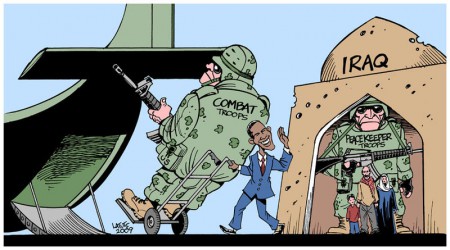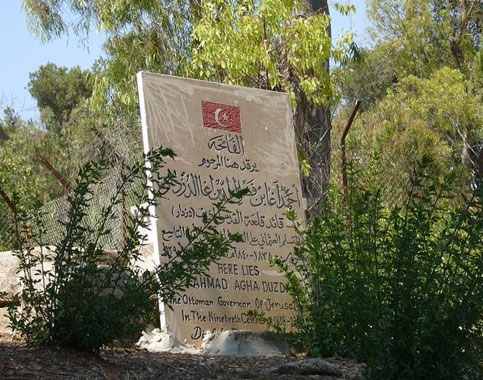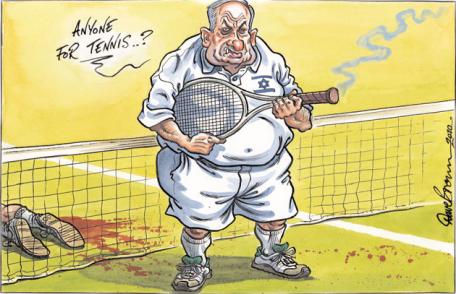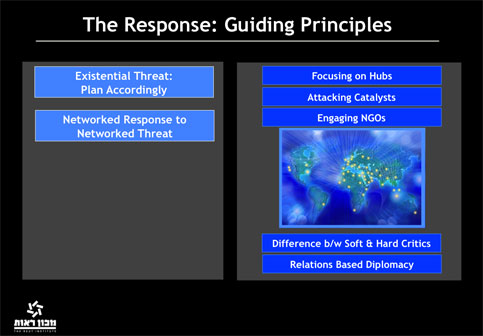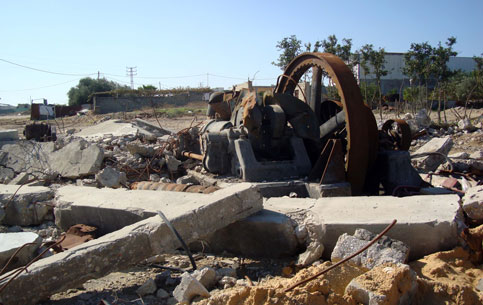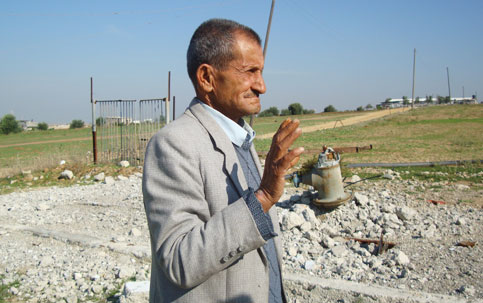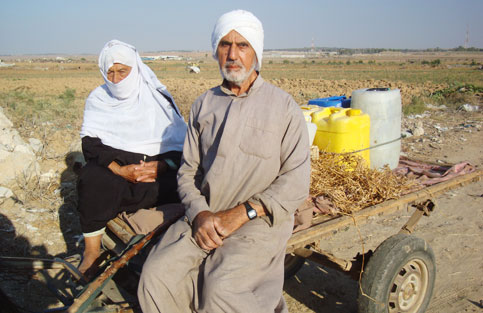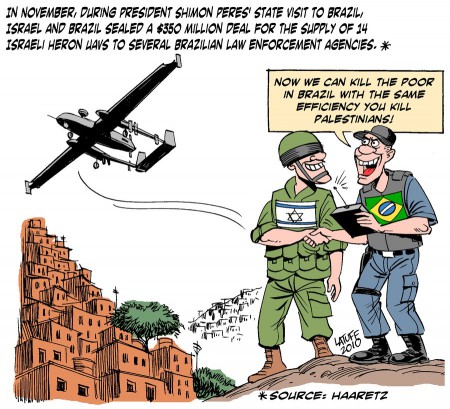
‘Netanyahu authorized Dubai assassination in early January’: Haaretz
Prime Minister Benjamin Netanyahu authorized in early January the assassination of Hamas commander Mahmoud al-Mabhouh, according to the Sunday Times.
Based on information obtained from “sources with knowledge of Mossad,” the paper reported that Netanyahu gave Mossad chief Meir Dagan the green light for the Dubai operation during a meeting at the Midrasha – the intelligence agency’s headquarters, in the northern suburbs of Tel Aviv.
The sources also said that the Mossad hit squad trained for the Dubai mission by secretly rehearsing in a Tel Aviv hotel.
Haaretz has learned that German officials are examining the identity of Michael Bodenheimer, the name that appeared on a genuine German passport allegedly used in last month’s assassination of Hamas commander Mahmoud al-Mabhouh in Dubai. The authorities in the city of Cologne, where the passport was issued, began a probe, and federal authorities are now considering a move of their own.
According to German weekly Der Spiegel, Bodenheimer, an Israeli, applied for a German passport from the Cologne authorities. Bodenheimer presented documents that proved German lineage, including his grandparents’ marriage certificate. He also showed his Israeli passport that was issued to him a year earlier in Tel Aviv.
The German passport was issued on June 18, 2009. That document was used by one of the assassination suspects in Dubai on January 19, a day before the killing.
According to Der Spiegel, Bodenheimer does not live in Cologne, as he had claimed in his application, and no other person by that name lives there. The magazine claims a man by that name lived in Herzliya until June last year.
Haaretz has learned that a Michael Bodenheimer lives in Bnei Brak. His wife told Haaretz in a telephone interview that “he has no German passport and he never asked for such a passport. He never visited Germany, except perhaps in transit on the way to the United States.”
His wife added that the ultra-Orthodox family does not have any family in Herzliya and that even though Bodenheimer’s grandparents were born in Germany, they emigrated to the United States, from where he immigrated to Israel 30 years ago.
“We are quiet people and are not used to so much attention,” she told Haaretz yesterday. “The past week since the news of this story broke has been difficult for us. The fact that someone is using his name does not make him involved in this story.”
Bodenheimer studies at a kollel, a yeshiva for married men. He has said he was astounded to see his name on the list of suspects, supposedly belonging to a German citizen.
“At first we didn’t understand what everyone was talking about,” Bodenheimer’s daughter said. “The picture that was published doesn’t look like him at all. He is always busy with Torah study,” she said, adding that he holds no citizenship other than Israeli and American.
The German media have reported that the intelligence services of the country are certain that the Mossad was involved in the killing and that the foreign minister demanded that Israel explain why it used a German passport.
Israel’s ambassador to Berlin, Yoram Ben-Ze’ev, was summoned to the Foreign Ministry, where he was asked about information that can shed light on the killing of Mabhouh.
Deputy Foreign Minister Danny Ayalon said yesterday that he does not expect relations between Israel and European countries whose passports were used in the assassination to deteriorate as a result of the incident.
“I do not expect a crisis in relations because there is nothing linking Israel to the assassination. Britain, France and Germany are countries with shared interests with Israel in countering terrorism,” Ayalon said, naming three of the four countries whose passports were used. At least three of the suspects used Irish passports.
Meanwhile, Hamas blamed Israel again yesterday for the hit. At a press conference, Salah al-Bardawil, one of the group’s Gaza-based leaders, said he does not suspect that the Palestinian Authority was involved in the killing and that the entire affair was the responsibility of Mossad.
However, the Hamas official said that the two Palestinians arrested in Dubai in connection with the killing are former officers in the Palestinian security services and were employed in a firm owned by a senior member of rival Fatah.
The London-based newspaper Al-Hayat reported that this company is owned by Mohammed Dahlan, formerly a Fatah strongman in the Gaza Strip before its takeover by Hamas two and a half years ago.
Bardawil said that Mabhouh had put himself at risk by booking his trip through the Internet and risked a security breach by telling his family in Gaza by telephone which hotel he would be staying at.
Also yesterday, the daily newspaper Al-Bayan reported that Dubai police had new evidence implicating the Mossad in Mabhouh’s assassination, which included credit-card payments and suspects’ phone records.
“Dubai police have information confirming that the suspects purchased travel tickets from companies in other countries with credit cards carrying the same names we have publicized [from the passports],” Al-Bayan quoted Dubai police chief Dahi Khalfan Tamim as saying.
Meanwhile, a Qatar news agency reported that Egyptian officials promised Dubai counterparts that they would try to persuade Israel to officially apologize for the assassination of Mabhouh in their country.
Egyptian diplomats told the newspaper Al-Arab that Dubai has asked Egypt to formally reprimand Israel for the hit.
Dubai police last week released photographs of 11 of the suspects. Interpol said on Thursday it had issued “red notices” for the suspects’ arrest in any of its 188 member countries.
On Friday, Britain offered new passports to six British citizens living in Israel whose identities were used by the suspects. This would protect them from inadvertent arrest by Interpol.
Report: German passport tied to Dubai hit wasn`t forged: Haaretz
German intelligence services investigating the assassination of Hamas commander Mahmoud al-Mabhouh in Dubai have found that one of the suspected members of the assassination team carried a genuine German passport, according to reports Saturday in German media outlets, including Der Speigel.
According to the findings of German federal investigators, in June 2008 an Israeli man named Michael Bodenheimer – who shares the name of an Israeli whose identity was used in the Dubai operation – came to immigration officials in Cologne with the pre-World War II address of his grandparents. Bodenheimer acquired German citizenship on the basis of this data.
After his name was listed as one of the suspected members of the Dubai assassination squad, Bodenheimer, who lives in Bnei Brak and is of American origin, said that he did not know how his identity was stolen.
Dubai authorities have said 11 European-passport holders were involved in the assassination, and last week published their names and photographs. The list included six people with British passports, three with Irish passports, and one each from France and Germany.
Bodenheimer, who immigrated to Israel from the United States more than 20 years ago, studies at a kollel, a yeshiva for married men. He said he was astounded to see the UAE list contained his name, supposedly belonging to a German citizen.
“At first we didn’t understand what everyone was talking about,” Bodenheimer’s daughter said. “The picture that was published doesn’t look like him at all. He busies himself with Torah study,” she said, adding that he holds no citizenship other than Israeli and American.
A Hamas legislator on Saturday said Hamas strongman Mahmoud al-Mabhouh, who was assassinated in a Dubai hotel last month, put himself at risk by booking his trip through the Internet.
The Hamas legislator, Salah Bardawil, also told a news conference Saturday that Mabhouh took additional risk by informing his Gaza family by telephone at which hotel he would be staying.
Mabhouh’s family on Saturday denied that he acted recklessly, according to Army Radio.
Dubai police and Hamas have blamed Israel’s Mossad spy agency for the killing. However, Deputy Foreign Minister Danny Ayalon said Saturday that there was no evidence tying Israel to the killing of Mabhouh at a luxury Dubai hotel on January 20.
“I don’t forsee a crisis with European allies because there is nothing that ties Israel to the assassination,” Ayalon said at an event in Rehovot.
“Britain, France and Germany all share our interests in the battle against global terror,” Ayalon added. “Therefore, there will be no crisis. Instead our relations [with these countries] will continue to deepen,” Ayalon added.
Also on Saturday, Arabic-language daily newspaper Al Bayan reported that Dubai police had new evidence implicating Israel’s intelligence agency Mossad in the assassination of the Hamas commander, which included credit card payments and suspects’ phone records.
“Dubai police have information confirming that the suspects purchased travel tickets from companies in other countries with credit cards carrying the same names we have publicized [in the passports],” Al Bayan quoted Dubai police chief Dahi Khalfan Tamim as saying.
The newspaper did not provide further details. Mabhouh was found dead in his room in a luxury Dubai hotel on January 20, a day after arriving in the emirate.
Meanwhile, a Qatar news agency reported that Egyptian delegates promised Dubai officials that they would try to persuade Israel to officially apologize for the assassination of Mabhouh in their country.
Egyptian diplomats told Al-Arab newspaper that Dubai has asked Egypt to formally reprimand Israel for the hit.
Dubai police last week released photographs of 11 of the suspects. Interpol said on Thursday it had issued “red notices” for the suspects’ arrest in any of its 188 member countries.
On Friday, Britain offered new passports to six British citizens, living in Israel, whose identities were used by the suspects, to protect them from inadvertent arrest by Interpol.
Other suspects identified by Dubai used forged passports from Ireland, France and Germany.
Dubai says new evidence links Israel to hit: Ynet
London Times’ sources suggest former Fatah members may have led Mossad agents to Hamas’ Mahmoud al-Mabhouh, while Dubai’s al-Bayan daily says emirate’s police have credit cards info, phone records implicating spy agency in assassination
Two Palestinians suspected of collaborating with Israel may be linked to the assassination of Hamas operative Mahmoud al-Mabhouh in Dubai, the Times reported Saturday.
According to the report, the two – Anwar Sheibar and Ahmad Hassanain, both former members of the Fatah security forces – may have led the alleged Israeli assassins to their target.
A senior Palestinian intelligence official quoted by the Times, said that it was “highly likely that both men had known al-Mabhouh personally during their time in military intelligence in the Gaza Strip.”
According to the Times, the US’ Federal Bureau of Investigation may also weigh in to the investigation, following reports that American credit cards were used in the operation.
Meanwhile, Dubai authorities said they have uncovered new evidence incriminating Israeli agents in the hit, including credit card payments and phone calls made by suspects, an Arabic-language Al Bayan daily reported on Saturday.
Police have already said the 11 suspects used forged passports in the names of innocent individuals of several European nationalities.
“Dubai police have information confirming that the suspects purchased travel tickets from companies in other countries with credit cards carrying the same names we have publicized (in the passports),” Al Bayan daily on Saturday quoted Dubai police chief Dahi Khalfan Tamim as saying.
“The new evidence… includes telephone communications between the culprits who have been detected,” Khalfan told the state-governed newspaper.
Following the release of the suspects’ photographs by Dubai authorities, Interpol issued “red notices” for their arrest in any of its 188 member countries.

